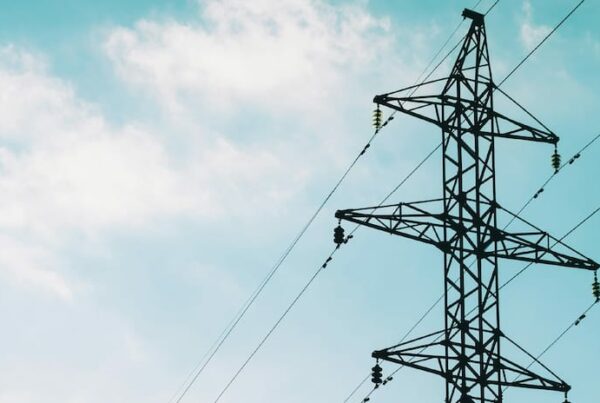This blog series covers the monthly La Plata Electric Association (LPEA) Board of Directors meetings. We’re tracking the board for transparency and accountability, as well as to stay current on their renewable energy initiatives. Find past and future spotlights here.
Get LPEA Spotlight in your inbox!
[button color=”extra-color-1″ hover_text_color_override=”#fff” size=”large” url=”#connect_open” text=”SUBSCRIBE” color_override=”#a1d078″]
Tri-State just keeps forging ahead on its mission for federal regulation under the Federal Energy Regulatory Commission (FERC), as opposed to current state regulation. At the beginning of September they announced that they had added a new member that is not a small electric co-op, which they assert automatically qualifies them for federal regulation.
The new member, MIECO, is a California-based company that supplies natural gas to Tri-State’s power plants. It is unclear how MIECO was added as a new member; we don’t know whether a new member class has been created or even if Tri-State’s Board voted on this.
This announcement restarted the 60 day clock for FERC filings, so we may not know for another two months whether Tri-State’s FERC application will be accepted. What makes their case even more complicated is that many parties, including the Colorado Public Utilities Commission (PUC) and LPEA, have filed to intervene.
There’s a lot of uncertainty surrounding Tri-State’s FERC application, and we still don’t know how federal regulation will affect co-ops like LPEA. For now, though, there are two big opportunities for change, one local and one statewide, coming down the pipeline:
LPEA To Aggressively Study Options
Last January, LPEA’s Board voted unanimously on a strategic goal to decrease LPEA’s carbon footprint by 50% by 2030 while keeping rates below 70% of other electric co-ops in the state.
Now they are working on achieving that goal.
In July, LPEA requested their buyout number from Tri-State as part of their research on the best path forward.
At the end of August, LPEA took the next step. The Board voted 10-1 to approve a resolution to “aggressively” look at three areas of focus to meet its strategic goal. Specifically, LPEA will:
Work with Tri-State and attempt to create a new contract that would allow LPEA to generate more renewable energy locally
Keep investigating a possible exit from their current contract with Tri-State, while working to make sure that any exit negotiations happen in Colorado
Continue to explore local renewable energy generation within the bounds of the current contract.
These three strategies will bring LPEA closer to its goal of cleaning up our energy while keeping rates affordable for customers. Plus, as CEO Jessica Matlock put it, strategic renewable development “is sustainable and economic for the company and it keeps rates stable.”
An Opportunity to hold Tri-State to higher standards
The PUC is holding two rulemaking processes this fall and winter about Tri-State’s Electric Resource Plan (ERP). The ERP is a long-term energy plan that helps regulators and utilities decide where to invest resources for electricity and decide where that electricity comes from. The goal of an ERP is to combine technical analysis and public participation at the PUC to ensure a low-cost, reliable, and environmentally responsible electric supply.
Historically, Tri-State has not been required to file ERPs in the same way that investor-owned utilities (like Xcel) have. This spring, though, the Colorado Legislature required that the PUC adopt new rules to hold Tri-State’s ERP to higher standards. The first PUC rulemaking process this fall regards those rules and is active through October 15th.
Tri-State’s ERP fundamentally affects LPEA and customers like you. Tri-State has high rates, a looming debt problem, and has consistently failed to invest in clean energy – if we want affordable, sustainable energy here in Southwest Colorado we need the PUC to require that Tri-State’s ERP:
Evaluates the cost of exiting resources to ensure that Tri-State is appropriately calculating the risks and costs of its expensive coal fleet
Accounts for the health and environmental impacts of carbon emissions from Tri-State’s power plants
Includes a workforce transition plan when proposing to retire an electric generating facility
You can help! We need you to let the PUC know that Tri-State needs to be held to higher standards so we all have affordable, responsible electricity. Click below to make a comment:
In Other News…
Tri-State recently announced that they, along with two other utilities, are joining the Southwest Power Pool’s (SPP) Western Energy Imbalance Service (WEIS) market.
A power pool is a system of trading electricity to help balance the electrical load over a larger grid than just a single utility. It’s used to help keep power prices low by efficiently meeting demand for electricity. The WEIS will be launched in early 2021 and will be used to balance generation and load regional in real time. Every five minutes, the market will dispatch energy from participating utility resources, which the SPP says will enhance both the reliability and affordability of electricity.
Unfortunately, this move limits the State of Colorado’s ability to make decisions about our electricity. By joining the SPP’s market, Tri-State could be forcing all Colorado utilities into that same market, instead of giving the PUC time to look at other regional options. A regional market is usually a good idea, but we don’t know for sure whether the SPP is the best one for us. And now, we don’t have a choice.
UPCOMING MEETINGS:
Next LPEA Meetings:
Board Meeting: Wednesday October 16th at LPEA Headquarters. Public comment at 9am.
Call or email your LPEA Board Directors.
(Hover over your neighborhood for contact information!)




